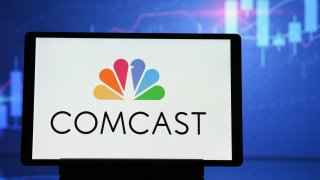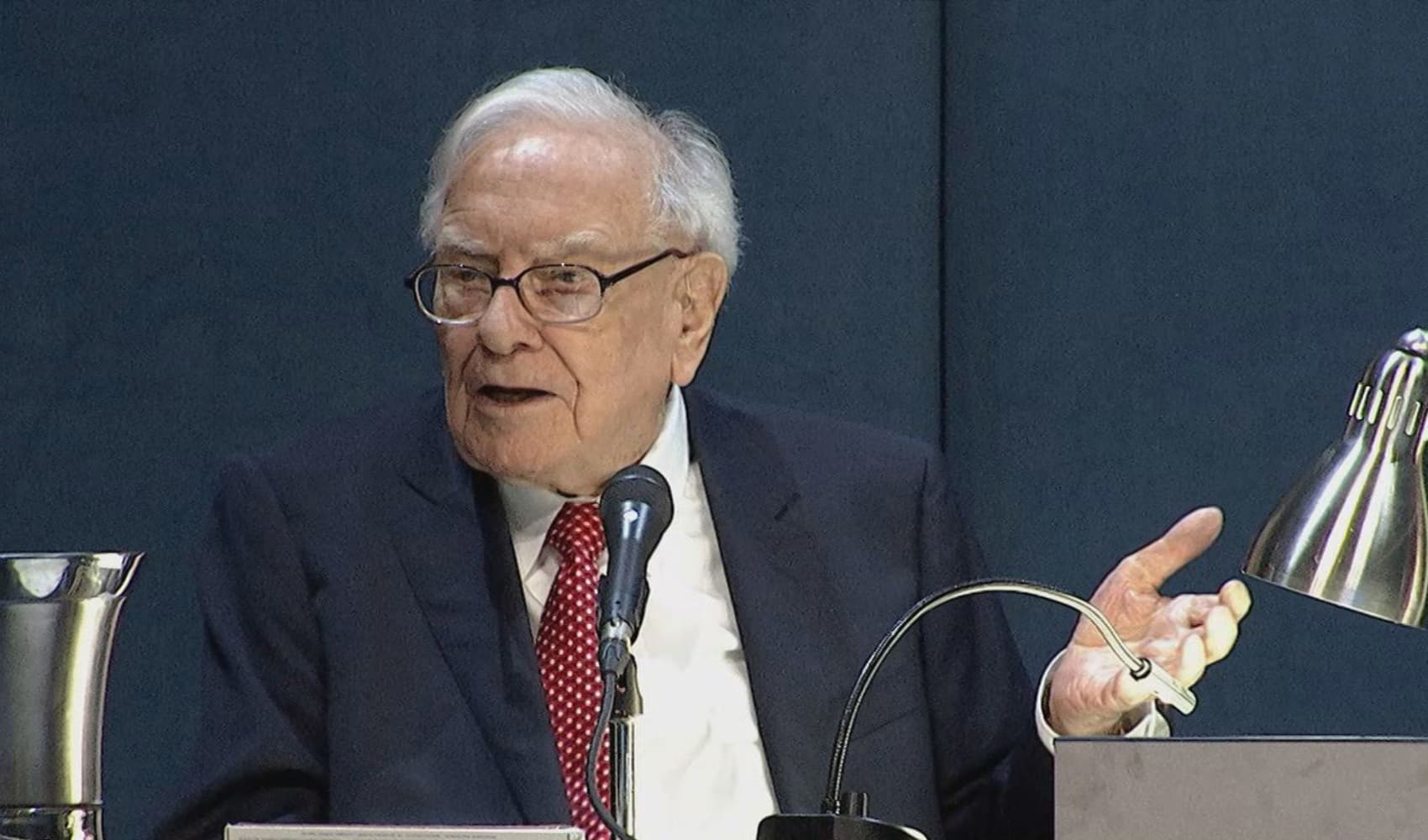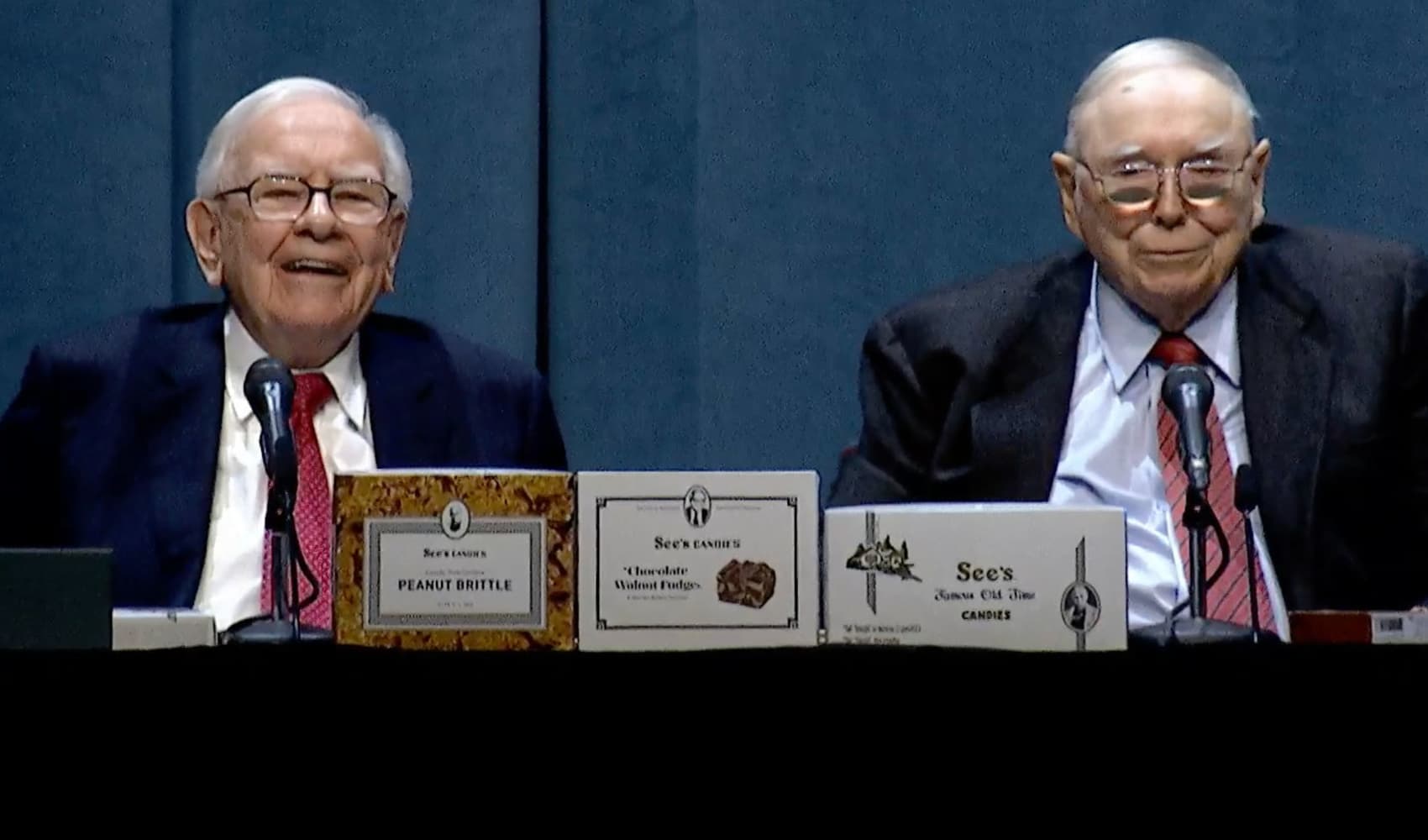
- Comcast posted quarterly earnings and revenue that beat expectations.
- The company lost more broadband subscribers, but revenue increased due to rate increases.
- Losses stemming from Peacock weighed on the segment and offset higher revenue.
Comcast beat first-quarter earnings expectations on Thursday as broadband drove revenue even as the company and its peers have seen customer growth slow.
Here is how Comcast performed, compared with estimates from analysts surveyed by LSEG:
Get Connecticut local news, weather forecasts and entertainment stories to your inbox. Sign up for NBC Connecticut newsletters.
- Earnings per share: $1.04 adjusted vs. 99 cents expected
- Revenue: $30.06 billion vs. $29.81 billion expected
For the quarter that ended March 31, net income rose 0.6% to $3.86 billion, or 97 cents a share, compared with $3.83 billion, or 91 cents a share, a year earlier. Adjusted earnings before interest, taxes, depreciation and amortization, or EBITDA, slid 0.6% to roughly $9.4 billion.
The company's revenue grew 1.2% to $30.06 billion compared to the same period last year. Revenue from the domestic broadband customers segment boosted that growth as rates increased, even as Comcast lost 65,000 customers during the quarter.
Money Report
Comcast's stock was trading down about 6% on Thursday.
Broadband struggles
Cable broadband companies' customer additions have slumped in recent quarters and weighed on stock prices.
The slowdown in the buying and selling of houses due to high interest rates has led to a decline in new home internet connections. Cable providers have also been hit with heightened competition for home broadband from wireless companies such as T-Mobile and Verizon.
Mike Cavanagh, president of Comcast, said on Thursday's earnings call that the market is "extremely competitive," especially for "cost-conscious customers."
Earlier this month, Comcast said it would launch NOW, a prepaid and month-to-month low-cost internet and phone plan program. The plan is designed to provide fixed wireless options at a low cost.
The plan supplements Comcast's long-standing internet option for low-income customers, called Internet Essentials.
Company executives do not expect an improvement in the near term, particularly with the expected end of the federal government's Affordable Connectivity Program, or ACP, which offers a $30 discount on broadband services to qualifying low-income households, in April.
Comcast's wireless business saw a 21% increase in customers during the quarter to 6.9 million total lines. The company lost 487,000 cable TV customers during the quarter as consumers continued to cut the cord in favor of streaming.
Hot films, cooling theme parks

The company's theme parks adjusted EBITDA fell 3.9% to $632 million during the quarter, due to an increase in operating expenses such as higher marketing and promotion costs, as well as the negative effect of foreign currency.
On Thursday, Cavanagh noted attendance at the Orlando theme park "felt some pressure" in the most recent quarter, as the company is in between introducing new attractions. He added the company is confident about long-term growth and future opportunities for its parks.
Increased competition, particularly from cruises, also weighed on theme parks, Comcast Chief Financial Officer Jason Armstrong said on Thursday's call.
Similarly, earnings for its media business, which includes NBCUniversal, and studios also declined. The three businesses now report under the same segment, which collectively saw revenue rise 1.1% to $10.37 billion.
Still, Comcast executives touted the strength of Universal Pictures' film slate, from recent Academy Award winners "Oppenheimer" and "The Holdovers," to upcoming highly anticipated movies such as the adaptation of the Broadway hit "Wicked."
Peacock, which executives also highlighted as a bright spot and a boost to NBCUniversal, is also reaping the benefits of the film slate.
Being the exclusive home of "Oppenheimer" when it was first released to streaming earlier this year proved to be a win for the platform. Comcast said it was the most-watched movie in Peacock history.
The service added three million paid subscribers during the quarter, bringing its total number of customers to 34 million. The exclusive National Football League Wild Card game on Peacock helped to add, and then retain, more customers than expected, executives said on Thursday's call.
"We're 3.5 years in, we're at a place where we're really seeing traction in our approach," Cavanagh said Thursday, pointing to the strength in the combination of sports and entertainment.
While Peacock is known for its large offering of live sports, including the NFL and the Premier League, Cavanagh said subscribers spend 90% of their time on nonsports programming on shows such as Peacock original "Ted," and its Universal film collection. He added that the company expects Peacock to have "real pricing power" over time.
Revenue for the streamer rose 54% to $1.1 billion compared to the same period last year. While domestic advertising was flat during the quarter, the company saw its domestic distribution revenue increase, driven by the growth at Peacock. Media companies have been facing a longer-than-expected soft advertising market.
Losses stemming from Peacock weighed on the segment and offset higher revenue. The company saw an adjusted EBITDA loss of $639 million related to Peacock during the quarter. That improved, however, from an adjusted EBITDA loss of $704 million in the same period last year.
Peacock losses were said to peak in 2023, and executives expect them to narrow in upcoming quarters. The Olympics in Paris this summer should also drive growth for the streaming service.
With more hours of the Olympics on its broadcast network NBC, in addition to Peacock, the company is on track to generate its most advertising revenue in its history for the Olympics.
Disclosure: Comcast is the parent company of NBCUniversal and CNBC.






